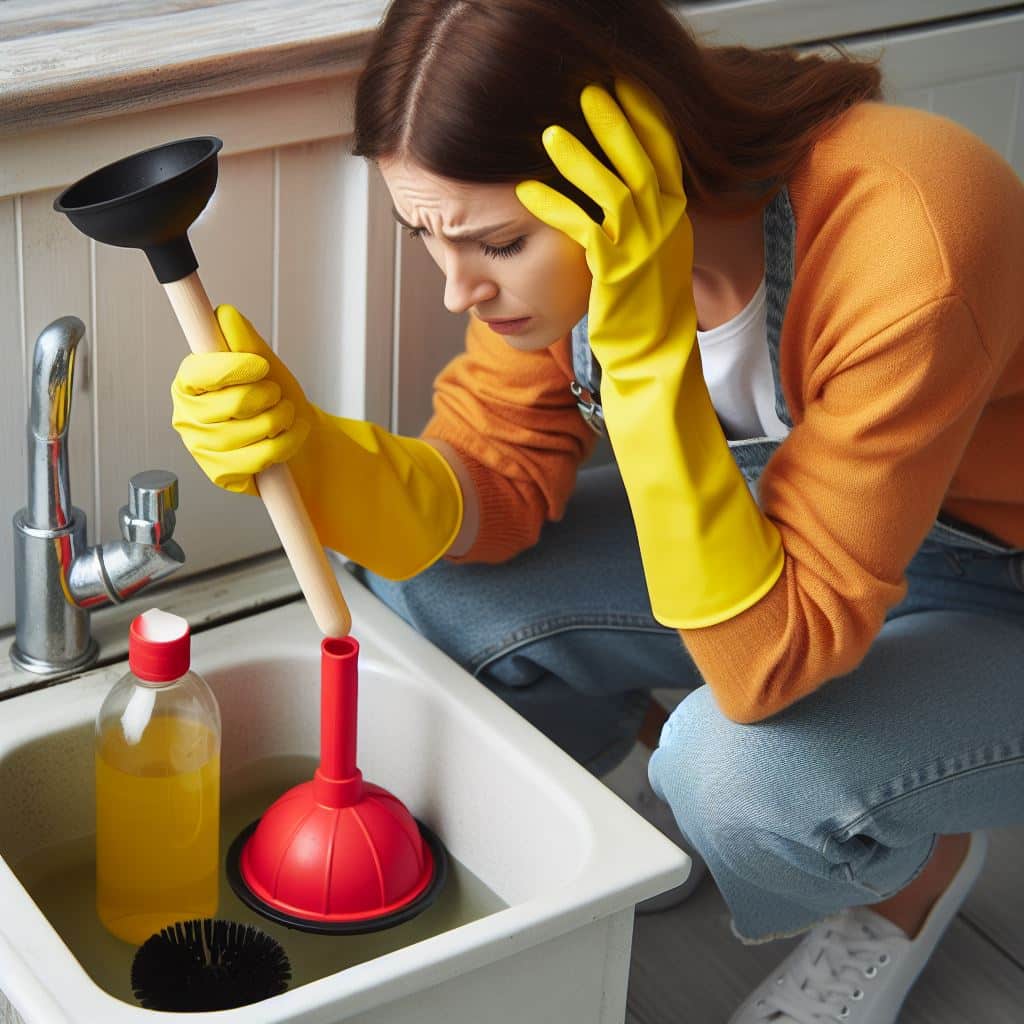To fix a grease-clogged sink, pour boiling water down the drain followed by a mixture of vinegar and baking soda. Use a plunger to dislodge the remaining grease accumulation.
Dealing with a grease-clogged sink can disrupt your daily kitchen routine, but the situation is manageable with some DIY methods. Grease buildup in drains is a common issue that arises from disposing of cooking oils and fatty substances improperly. If you’re wondering ‘How to Fix Grease Clogged Sink?‘ there are effective solutions you can try at home.
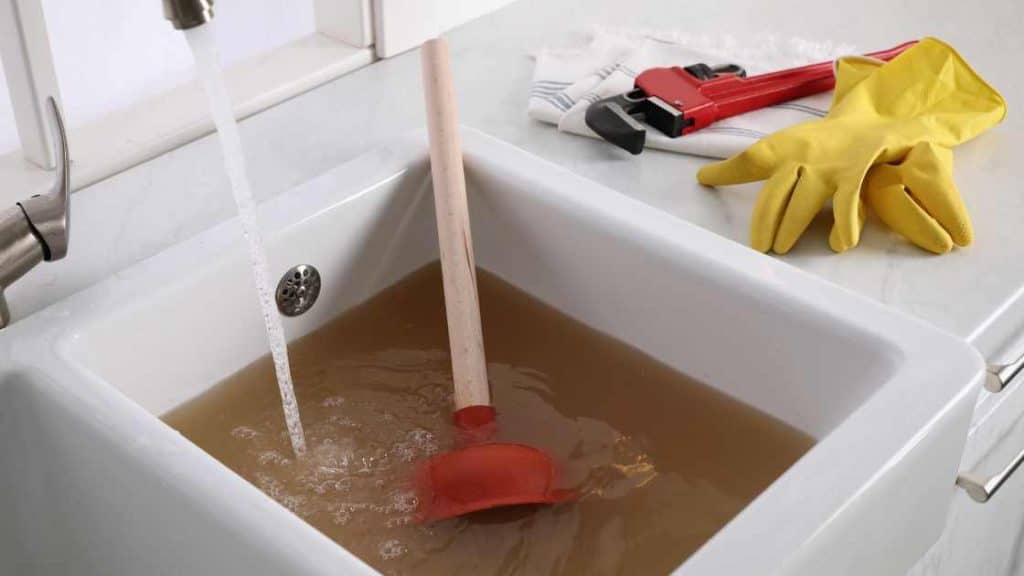
This introductory guide aims to provide homeowners with straightforward solutions to tackle this pesky problem without the need for professional assistance.
Effective remediation can restore your sink’s functionality, ensuring a smooth-running kitchen environment.
Our focus is on simple, yet effective approaches that require minimal tools, catering to those who prefer to handle household maintenance tasks themselves.
Introduction To Grease Clogs
Kitchen sinks often fall victim to grease clogs, a sneaky problem. Grease clogs form slowly over time and can become a real headache. This post dives into the heart of grease clog issues, helping you understand and tackle them head-on.
How Grease Buildup Occurs
Grease clogs don’t just happen overnight. Every time you wash dishes, a little bit of grease goes down the drain. Some tips to prevent this include:
- Wiping plates with a paper towel before washing
- Pouring oil and grease into a container instead of the sink
- Using a grease-fighting dish soap
Think of your pipes as arteries and grease as cholesterol. Just like bad cholesterol can block arteries in a body, grease can block the pipes in your home plumbing system.
Identifying Symptoms Of Grease-Clogged Sinks
Spotting a grease-clogged sink early is crucial. Some tell-tale signs include:
- Water draining slower than usual
- Unpleasant odors emanating from the drain
- Gurgling noises as water struggles to pass through
If you spot these symptoms, act swiftly. Your sink is sending an SOS, and the sooner you address it, the better.
Preventative Measures To Avoid Future Clogs
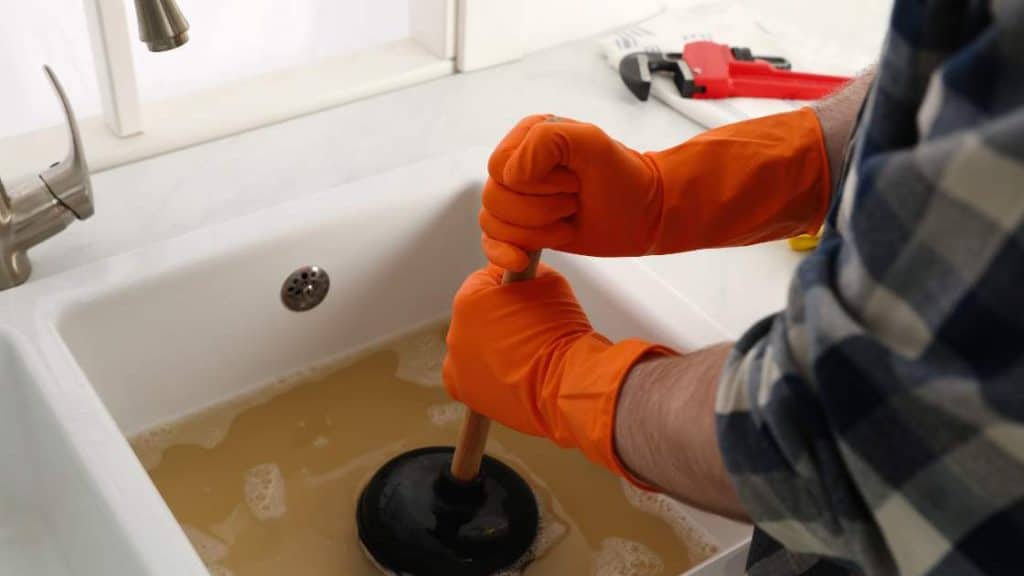
Preventing future clogs begins with proper habits. Keep grease from ruining your day by adopting measures that guarantee your sink stays clear. Simple routines can make a huge difference in maintaining your drain’s health.
Proper Disposal Of Grease And Oils
Grease and oils cause major sink blockages when poured down the drain. They solidify and snag food particles and debris. To prevent this:
- Wait for the grease to cool and solidify. Then scrape it into the trash.
- Use absorbent materials like paper towels to wipe oil from pans before washing.
- Consider reusing or recycling cooking oils if possible.
Regular Maintenance Tips For Drain Health
Regular drain maintenance keeps flows smooth and clog-free. Here are some easy tips:
- Weekly, flush your sink with hot water to dissolve any lingering grease.
- Mix baking soda and vinegar for a natural cleaner once a month.
- Run cold water through the garbage disposal to solidify grease and move it along.
The Role Of Sink Strainers And Grease Traps
Strainers and grease traps are your first defense against clogs. They work like this:
| Tool | Function |
|---|---|
| Sink Strainers | Catch food particles and prevent them from entering the drain. |
| Grease Traps | Capture grease and oils before they enter plumbing systems. |
Check and clean these tools regularly to ensure they work efficiently.
Immediate Actions To Take Upon Discovering A Grease Clog
Finding a grease clog in your sink can cause panic. Immediate action is necessary to prevent further issues. Before rolling up your sleeves, it’s vital to understand the steps to fix the problem without causing more damage.
Safety Precautions Before Attempting To Fix
Safety comes first when dealing with a grease-clogged sink. Here are some precautions:
- Avoid chemicals if you have already used drain cleaners.
- Wear gloves to protect your hands from grease and debris.
- Keep the area ventilated to avoid inhaling fumes.
Initial Home Remedies To Try
Let’s explore some simple home solutions.
- Boiling Water: Slowly pour down the drain to melt the grease.
- Dish Soap and Hot Water: Mix and pour it into the sink to break down grease.
- Baking Soda and Vinegar: This natural combination can help dislodge the clog.
These steps can clear the grease and get your sink back to normal.
Mechanical Methods To Clear Grease Blockages
When a kitchen sink starts to drain slowly or stops draining completely, a grease clog might be to blame. Before reaching for chemical drain cleaners, consider mechanical methods to clear grease blockages. These methods can be safer for your pipes and the environment.
Using A Plunger To Dislodge Grease
A plunger can help solve your grease-clogged sink problem. The force created can dislodge the grease, allowing water to flow. It’s simple and cost-effective. Follow these steps:
- Fill the sink with hot water to cover the bell of the plunger.
- Position the plunger over the drain and ensure a tight seal.
- Pump vigorously for several minutes.
- Check the drain by removing the plunger and observing if the water drains.
Repeat the process if initial attempts don’t clear the clog.
Employing A Plumber’s Snake: Steps And Techniques
For tougher blockages, a plumber’s snake, or auger, might be needed.
- Insert the snake into the drain until resistance is felt.
- Rotate the handle, which helps the snake to latch onto the grease.
- Pull out slowly, bringing some of the clog with it.
- Run hot water to clear remaining grease.
Patience and repeated attempts might be necessary.
Chemical Solutions For Grease Clogs
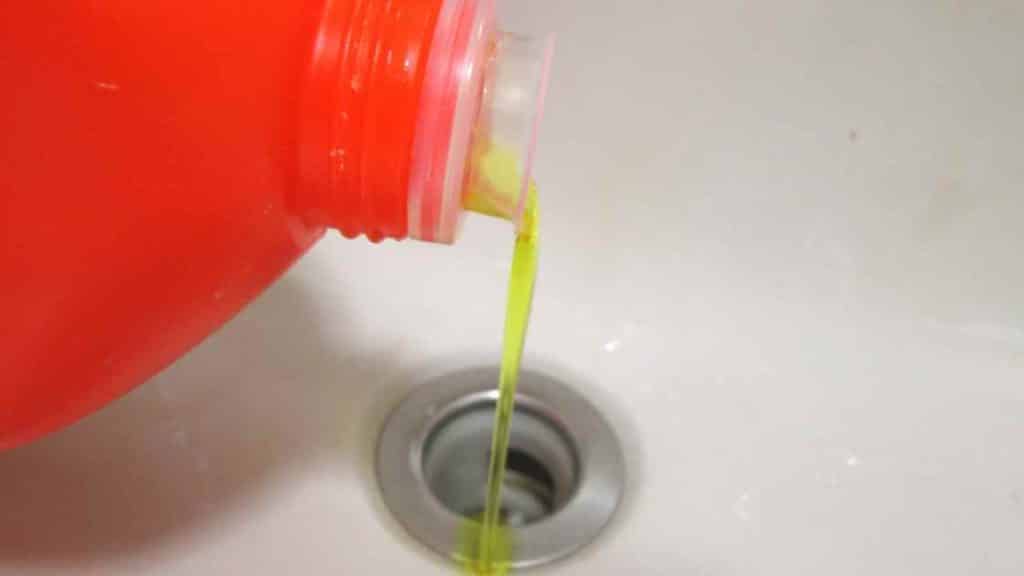
Grease clogs in sinks can be stubborn. Years of buildup from cooking oils and fats can lead to slow drainage and complete blockage. In these situations, chemical solutions often become necessary.
These powerful agents can break down grease, allowing water to flow smoothly once again. It’s important to understand how to safely use them to clear grease clogs for good.
Choosing The Right Chemical Drain Cleaner
- Read labels carefully: Look for products designed to tackle grease.
- Safety first: Use gloves and goggles to protect your skin and eyes.
- Follow instructions: Using more than recommended can damage pipes.
Certain cleaners offer powerful grease-fighting formulas. Alkaline cleaners, with ingredients like sodium hydroxide, can make quick work of grease clogs. Don’t mix chemicals, as this can cause dangerous reactions.
Environmentally Friendly Alternatives For Grease Dissolution
Eco-conscious households may prefer greener methods for clearing grease. Good news – several environmentally friendly alternatives exist.
| Alternative | How It Works |
|---|---|
| Baking Soda & Vinegar | Creates a fizzing action to break down grease |
| Boiling Water | Softens and loosens hardened grease |
| Enzymatic Cleaners | Digests organic matter like grease without harsh chemicals |
Combine these methods with regular hot water flushes to maintain clear drains. They’re gentle on pipes and the planet.
Natural And Diy Approaches
Grease clogs can be a kitchen nightmare. They block water flow and cause foul odors. Many people reach for harsh chemicals, but natural DIY methods are safer for your pipes and the planet. These approaches combine common household items with simple techniques to clear your sink.
Vinegar And Baking Soda Method
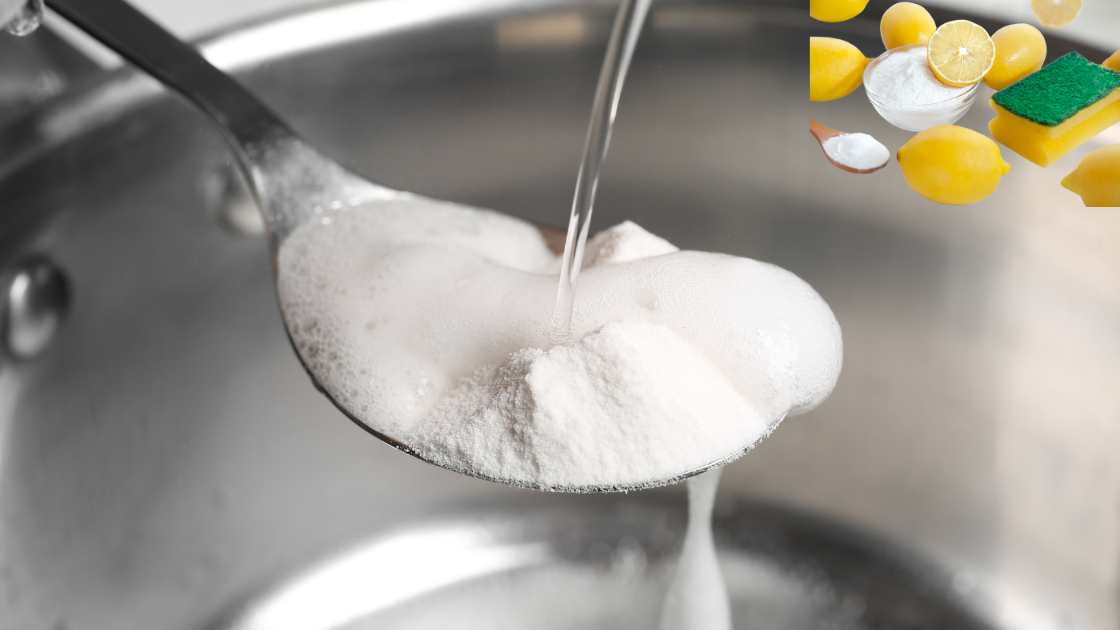
The vinegar and baking soda method is a classic solution for grease-clogged sinks. It’s safe, effective, and uses items found in most kitchens. Follow these steps to unclog your sink naturally:
- Pour one cup of baking soda into the drain.
- Follow with one cup of white vinegar.
- Cover the drain to contain the reaction.
- Wait 15 minutes. You’ll hear fizzing.
- Rinse with boiling water to clear the residue.
This combination creates a chemical reaction that dissolves grease. It’s eco-friendly and mild on pipes.
Hot Water Flush Technique
Boiling water alone can sometimes melt away grease. This technique is quick and straightforward. Here’s how to do it:
- Boil a large pot of water.
- Pour the water directly down the drain.
Repeat if necessary. Use kettle-boiled water for ease. This method is good for small grease blockages.
Professional Help: When To Call A Plumber
Sometimes, a grease-clogged sink is a job for a pro. You’ll need to know when it’s time to pick up the phone.
Evaluating The Severity Of The Clog
A quick assessment can save time and effort. Below are signs of severe clogs:
- Water stands still – If water doesn’t drain, the clog is serious.
- Bad odors – Persistent smells suggest a deep-set blockage.
- Home remedies fail – If plunging and boiling water don’t work, it’s a tough clog.
Benefits Of Professional Drain Cleaning Services
Expert plumbers bring more than just quick fixes. They offer:
| Benefit | Description |
|---|---|
| Specialized Equipment | Tools like motorized drain snakes break through tough blockages. |
| Expertise | Plumbers have the know-how to diagnose and resolve complex issues. |
| Long-term Solutions | They fix the current problem and help prevent future clogs. |

Post-clog Cleanup And Sink Restoration
Conquering a grease clogged sink brings immense satisfaction. Yet, it’s the ‘Post-Clog Cleanup and Sink Restoration’ that rounds off the victory.
This final stride ensures a kitchen’s heart remains hygienic and fully operational. Delving into post-clog care, let’s explore pivotal steps to sanitize and restore your sink’s shine and functionality.
Cleaning And Sanitizing The Sink After Unclogging
Once the clog dissipates, a thorough cleanup is due. Begin by donning gloves for hygiene. Mix equal parts of white vinegar and hot water in a bowl. Saturate a sponge in the mixture and scrub the sink surfaces.
This method not only cleans but also disinfects, killing germs that thrive in clog-prone environments. Rinse with warm water and dry the sink with a soft cloth to prevent water spots.
- Empty and rinse the sink to shed any residue.
- Create a cleansing solution for a safe, effective clean.
- Scrub with care, reaching all corners and crevices.
- Rinse thoroughly, ensuring no cleaning agent remains.
- Dry and buff for a sparkling finish.
Restoring Drain Flow And Testing For Proper Function
Post-clog, guaranteeing smooth drain flow is critical. Commence by running hot water for several minutes to flush any lingering grease. Next, employ a plunger to bolster the cleaning effort. Several vigorous plunges help dislodge any residual debris.
Use a homemade mix of baking soda and vinegar to maintain a clean drain. This combo fizzes away subtle blockages and keeps odors at bay.
- Run hot water to navigate the remaining grease away.
- Use a plunger to ensure clear pathways.
- Combine baking soda and vinegar for a natural clean.
- Test the drain with a substantial water flow.
- Observe and verify seamless drainage.
Implement these steps for a clean and pristine sink, ready for all your kitchen adventures.
Maintenance And Care Going Forward
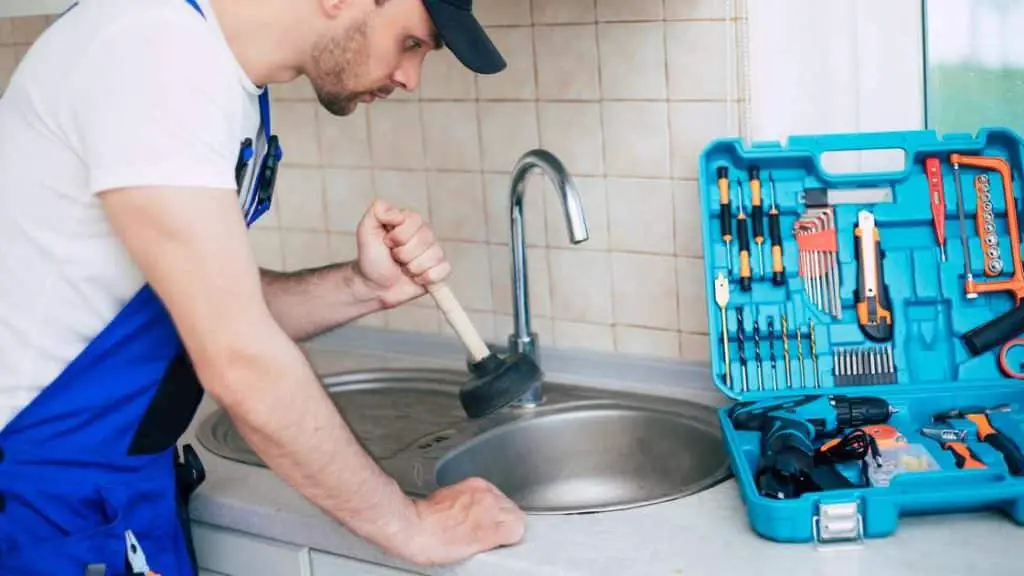
Maintenance and care are vital for preventing future grease clogs in your sink. Once you’ve cleared up the mess, adopting a proactive approach ensures your sink stays in prime condition. Here’s how to keep your kitchen sink flowing smoothly.
Scheduling Regular Professional Inspections
Professional inspections play a vital role in sink maintenance. Qualified plumbers spot issues early, saving you from future blockages. Aim to schedule an inspection at least once a year for best results. Pros use tools that go beyond a standard plunger. They check deeper into the plumbing for hidden grease buildup.
Do’s And Don’ts For Sink Usage
Adopt these habits to reduce the risks of a grease-clogged sink:
- Wipe cookware and dishes to remove grease before washing.
- Use strainers to catch food scraps and other debris.
- Run hot water after washing up to clear the remaining oils.
Avoid these common mistakes:
- Never pour oil or grease down the sink.
- Avoid disposing of food scraps in the drain.
- Don’t depend solely on garbage disposals.
Best Practices Recap
Our kitchens are the hearts of our homes, but a grease-clogged sink can bring everything to a standstill. This ‘Conclusions and Best Practices Recap’ offers a compact guide to tackle and prevent this sticky issue.
Summary Of Effective Techniques For Different Scenarios
Boiling Water: Simple and quick. Pour down the sink to dissolve the grease.
Dish Soap and Hot Water: Breaks down grease effectively. Use regularly.
Plunger: Handy tool for dislodging clogs. Use with care to avoid spillage.
Homemade Solutions: Vinegar and baking soda can work wonders. Rinse thoroughly after.
Professional Enzyme Cleaners: Eco-friendly and powerful. Follow the instructions on the label.
Plumber’s Snake: For stubborn clogs. Twist and push gently to clear pipes.
Rely on professionals when home remedies fail. Regular maintenance is key.
Final Thoughts On Preventing Future Grease Clogs
- Dispose of grease properly: Never pour fats down the sink.
- Use sink strainers: Catch food particles before they enter the drain.
- Regular cleaning: Hot water and dish soap flush after dishes.
- Enzyme Cleaners: Monthly treatments to maintain clear pipes.
Educating household members on the dangers of grease in sinks fortifies prevention efforts. Being proactive saves time, money, and the inconvenience of a clogged sink. Enfold these habits to keep your pipes free-flowing and your kitchen running smoothly.
Frequently Asked Questions Of How To Fix Grease Clogged Sink
What Causes A Grease-Clogged Sink?
Grease clogs occur when fats, oils, or grease cool and solidify in plumbing. These substances stick to pipes, eventually causing blockages. Regular disposal of grease down the drain is often the primary cause of these clogs.
How Can I Unclog A Grease-filled Sink?
To unclog a grease-filled sink, begin by pouring boiling water down the drain. If this doesn’t work, apply a mixture of baking soda and vinegar, followed by more hot water. For persistent blockages, a chemical drain cleaner or a plumber’s snake may be necessary.
Are Home Remedies Effective For Grease Clogs?
Yes, home remedies like hot water, baking soda, and vinegar can be effective for dissolving grease clogs. They are a safe and environmentally friendly first step before resorting to chemical cleaners or professional help.
How Often Should I Clean My Sink To Prevent Grease Build-up?
Prevent grease build-up by cleaning your sink weekly with hot water. Also, avoid pouring grease down the drain. Instead, dispose of it in a container and throw it in the trash.
What will dissolve grease in a drain?
To dissolve grease in a drain, you can use a mixture of baking soda and vinegar. Pour half a cup of baking soda followed by a cup of vinegar down the drain, let it sit for about 30 minutes, and then flush it with hot water to break down and wash away the grease.
Does grease ruin your sink?
Grease can indeed pose a threat to your sink as it has the potential to solidify and accumulate within the pipes over time, leading to clogs and drainage issues. To prevent damage, it’s advisable to dispose of grease properly by collecting it in a separate container and then discarding it in the trash instead of pouring it down the sink.
Conclusion
Tackling a grease-clogged sink can seem daunting, but it’s manageable with the right steps. Remember, routine maintenance and mindful disposal are key. Armed with these tips, you’re now equipped to keep your sink clear and functioning well. Don’t let kitchen mishaps slow you down; face them head-on with confidence!

